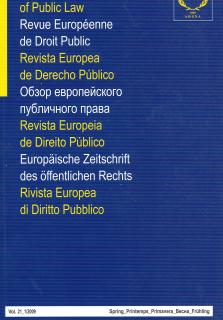
Administration without Frontiers?
European Migration Law
Case Study
PhD in Law (Oxon), Attorney at Law,
Deputy Director of the Academy of European Public Law
Monitoring migration proves to be a difficult project for most countries, especially non-EU members but also - even if to a lesser extent - EU Member States. Weaknesses in maintaining and sharing credible and up-to-date data are due to one or more of the following reasons: inefficient administrative structure, dispersion of competences to many offices and lack of coordination overview, ineffective cooperation between the various offices involved, lack of uniform methodologies for the collection and storing of data, inability of national authorities to finance monitoring of migration so as to acquire and/or maintain the necessary human and technological resources. The EU may have established central databases for the use of its Member States, but as long as national monitoring authorities perform poorly, the information stored in these databases will not be completely reliable. In the field of integrating immigrants, national plans are focused primarily on three parameters: education as a means of social integration, treatment of immigrants’ basic welfare needs, and opportunities of access to the labour market. The financial burden, however, that has to be borne by countries of reception is very high, and in some countries too high to be met. The sheer numbers of the waves of immigrants (both legal and, more crucially, illegal) has exacerbated the phenomenon and has rendered any detached national initiative at addressing it futile. After all, migration is an inter-State phenomenon (involving countries of origin, transit and destination), and only as such it will be addressed effectively and comprehensively.





















